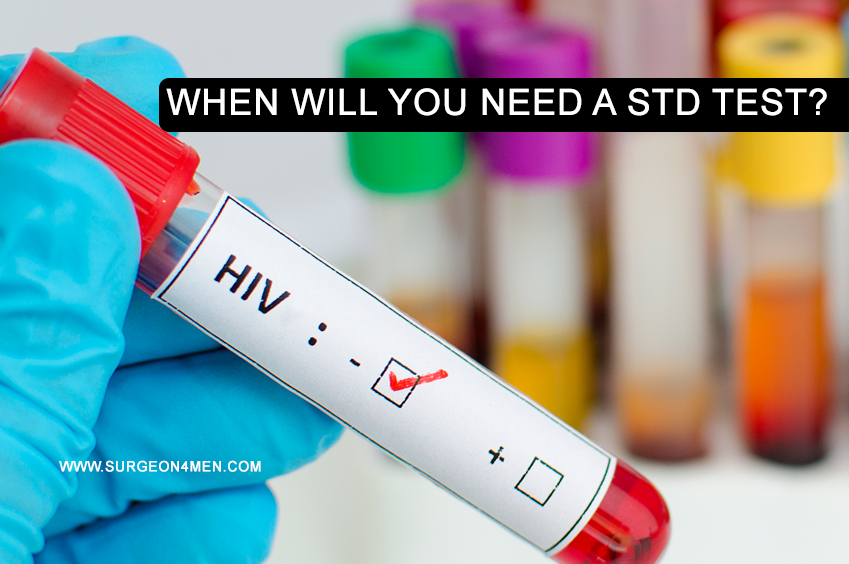When will you need a STD test?
STD screening is important for everyone who is sexually active with more than one partner (or with single partner who have multiple partners). The nature and intervals at which these screening tests are performed vary; depending on several factors. The aim of performing screening tests is to identify, manage or treat sexually transmitted infections as early as possible in order to minimize the risk of complications.
STIs are sexually transmitted infections that may occur without symptoms. The infection can lead to disease. If there are no symptoms then STI screening should be considered in order to initiate treatment before the onset of disturbing symptoms.
Most Common STDs in United States
- Human Papillomavirus (HPV): it is commonly classified among the most common sexually transmitted infections within the United States. The infected individuals presents with genital warts. It is transmitted easily and is extremely contagious. In presence of genital warts, inspection alone is sufficient to make the diagnosis and initiate therapy. In long standing cases, biopsy is also advised as some strains aggravates the risk of malignancy. In case of a sexual encounter with someone who may have human papilloma virus, serological screening is advised (as some infections are silent).
- Gonorrhea and Chlamydia: Screening for Chlamydia and Gonorrhea is usually performed at the same time. It is noteworthy that mild infections with these bacterial agents may be missed (which further necessitates the need of periodic screening in at-risk population). The primary pathophysiology revolves around history of contact with an infected partner (via oral, genital or anal sex).
- Syphilis: It is also transmitted via sexual contact with an infected partner. Most patients develop an infectious sore (often painless) that is highly contagious and may spread to other healthy sexual contacts.
- Herpes: Herpes can also cause oral and genital infections. Initial symptoms include, onset of a sore near mouth or anus (with a variety of other nonspecific symptoms). Herpes infection is usually transmitted via infected sore or from asymptomatic carriers of this virus.
- HIV: It is transmitted through intercourse (unprotected anal or vaginal) or transfer of infected blood or other fluids.
- Hepatitis C: It is transmitted via exposure to infected blood or body secretions (via sexual contact with infected person). Chronic Liver inflammation is a known complication of long-standing Hepatitis C infection.
- Hepatitis B: It is transmitted through semen or blood. Chronic infections lead to liver dysfunction and possibly malignancy of liver after a period of 1-2 decades.
When do you need STD Screening?
 When you don’t see any symptoms and still think you’re having a sexually transmitted infection, you should go for screening. STI screening is very important based on the risk profile. Depending on your lifestyle, your doctor can recommend the test that is most suitable for you. Indications of STD screening are:
When you don’t see any symptoms and still think you’re having a sexually transmitted infection, you should go for screening. STI screening is very important based on the risk profile. Depending on your lifestyle, your doctor can recommend the test that is most suitable for you. Indications of STD screening are:
- Sexually active individuals: Initial STD Screening is a must if you are sexually active (even with one partner at a time). In women, it is easier to develop infections like Chlamydia and gonorrhea without experiencing any serious symptoms of infection. Obviously there is no need to test yourself frequently if you are in a monogamous relationship with one partner for an extended period of time.
- Unprotected sex: STD screening is recommended after oral, anal or genital sex with a new partner without any protection. The outcomes of screening are reliable if the test is conducted after the incubation period of viral/ bacterial exposure.
- Syphilis: 1-12 weeks
- Gonorrhea and chlamydia: 2 weeks
- HIV, hepatitis B, C: 6-12 weeks
- Risky Relationships: Testing is recommended if you and/ or your partner are in an open relationship or in the setting of other risky behaviors such as binge drinking, prostitution, illicit drug abuse etc. In individuals who are in close/ intimate contact with drug users, homosexuals (especially males); the risk of developing serious diseases such as HIV, hepatitis B and C, syphilis, Chlamydia and gonorrhea increases several-fold.
- History of past infections: If you have a history of an active sexually transmitted infection, it is recommended to get tested every 3 months (especially if you are sexually active with no changes/ modifications in the lifestyle). It is also very important to refrain from engaging in any sexual encounter during the treatment period (even if you are no longer symptomatic).
- Baby boomer: Baby boomers are at high risk of developing STDs like hepatitis C (because of risky hospital practices and poor sanitation back in the days).
- Active Symptoms: If you are experiencing disturbing symptoms that points to a STD, you must discuss it with your doctor. The symptoms and history of Illness can help in determining the type of STD screening test to be employed.
Types of STD Screening Tests
There are several types of STD screening tests. In most cases, a fresh sample of genital secretions or blood is needed to make the diagnosis. If you have an active sore or a weeping ulcer, it is ideally recommended to take the secretions in a swab for easy detection of infectious agent. Rapid HIV tests are also available to be used in the domestic setting and can give accurate results within 20-minutes.
Screening is important for you and your partner. It serves to alert individuals against infections that are silent or asymptomatic. If an infection is identified early, effective treatments can reduce the risk of complications several folds. For example, long standing gonorrhea may lead to pelvic inflammatory disorder and infertility in females; which is absolutely preventable with care and early treatment.
References
1. Peters, R. P., Nijsten, N., Mutsaers, J., Jansen, C. L., Morré, S. A., & van Leeuwen, A. P. (2011). Screening of oropharynx and anorectum increases prevalence of Chlamydia trachomatis and Neisseria gonorrhoeae infection in female STD clinic visitors. Sexually transmitted diseases, 38(9), 783-787.
2. DiClemente, R. J., Sales, J. M., Danner, F., & Crosby, R. A. (2011). Association between sexually transmitted diseases and young adults’ self-reported abstinence. Pediatrics, 127(2), 208-213.

